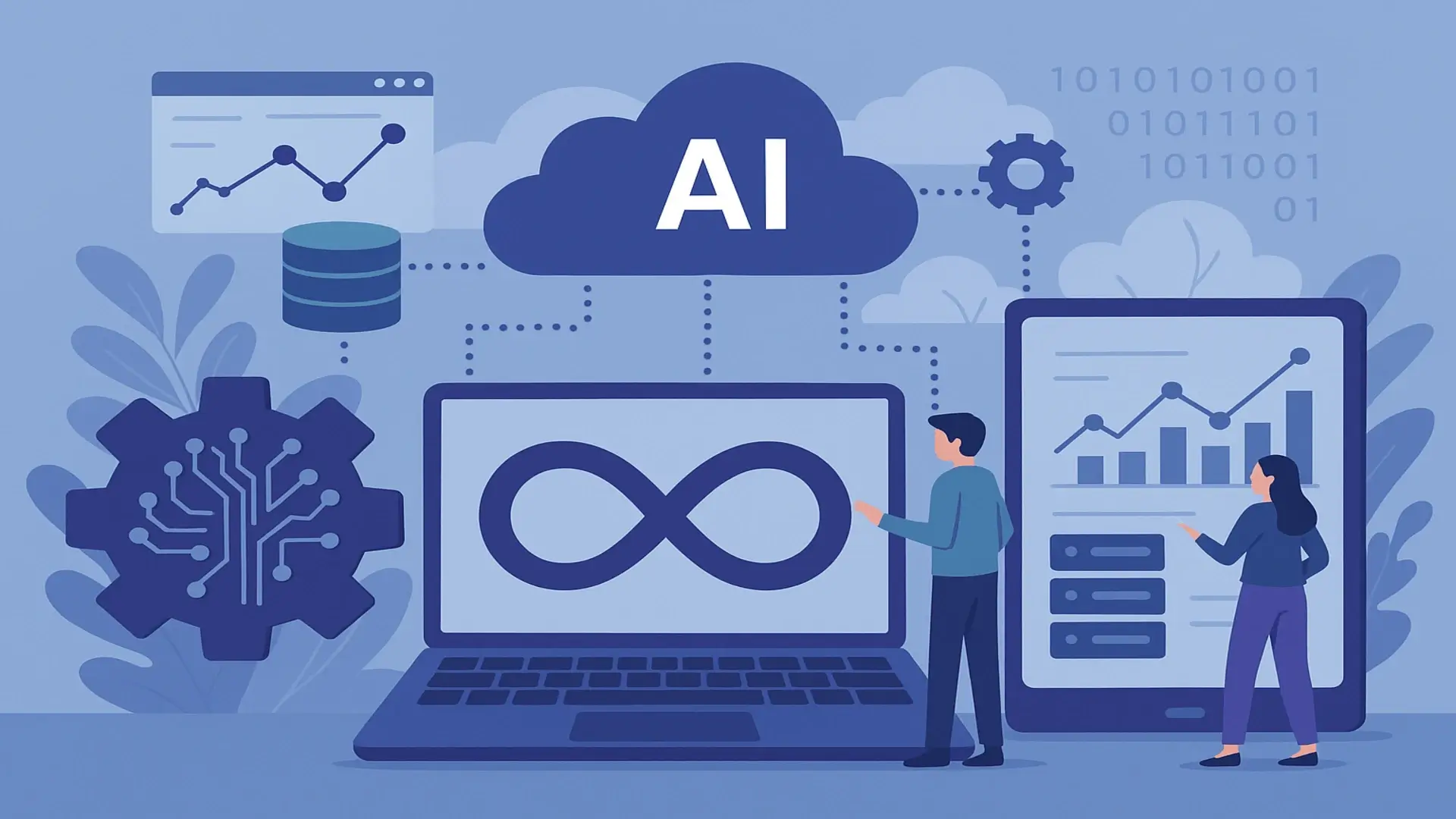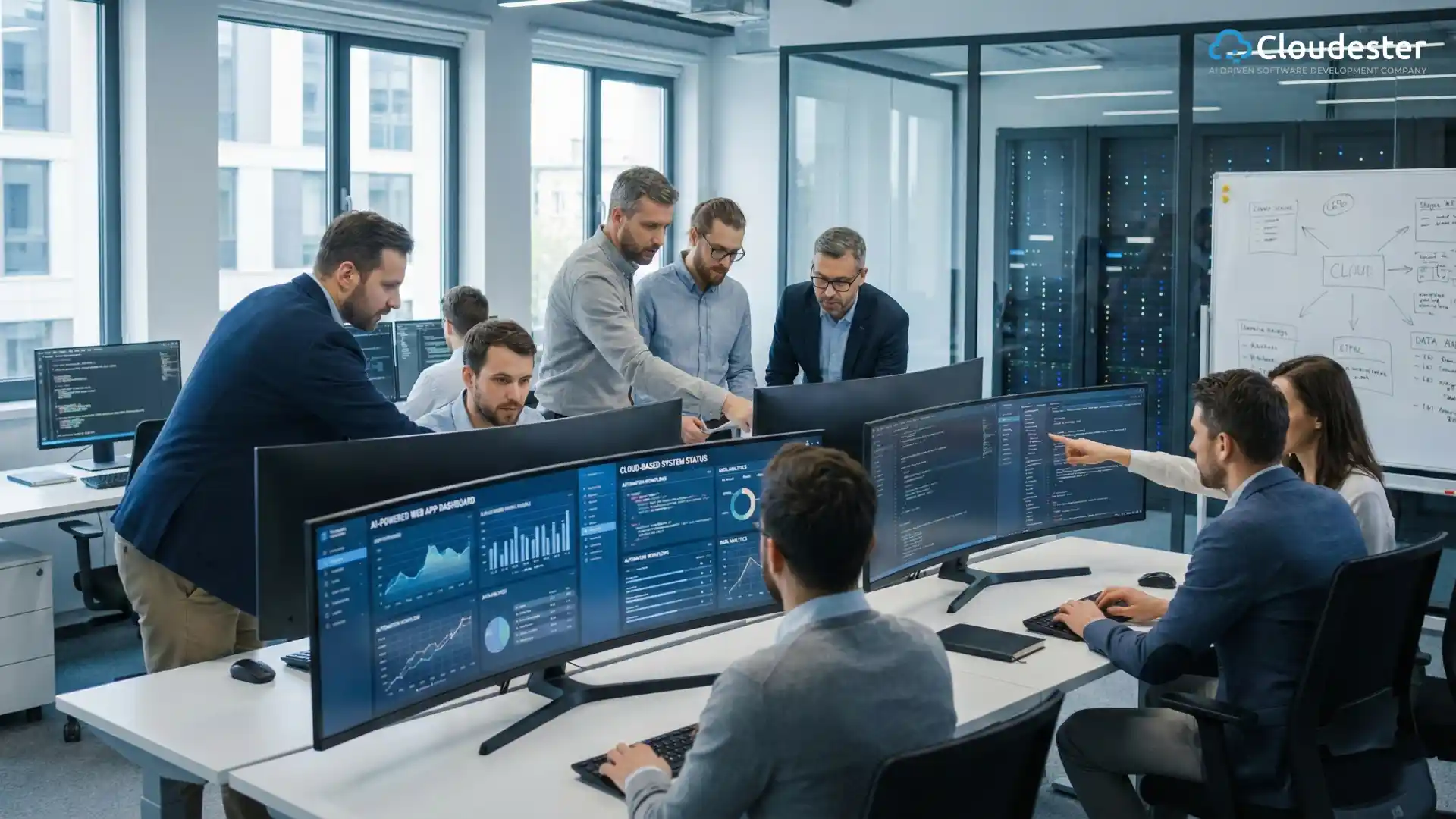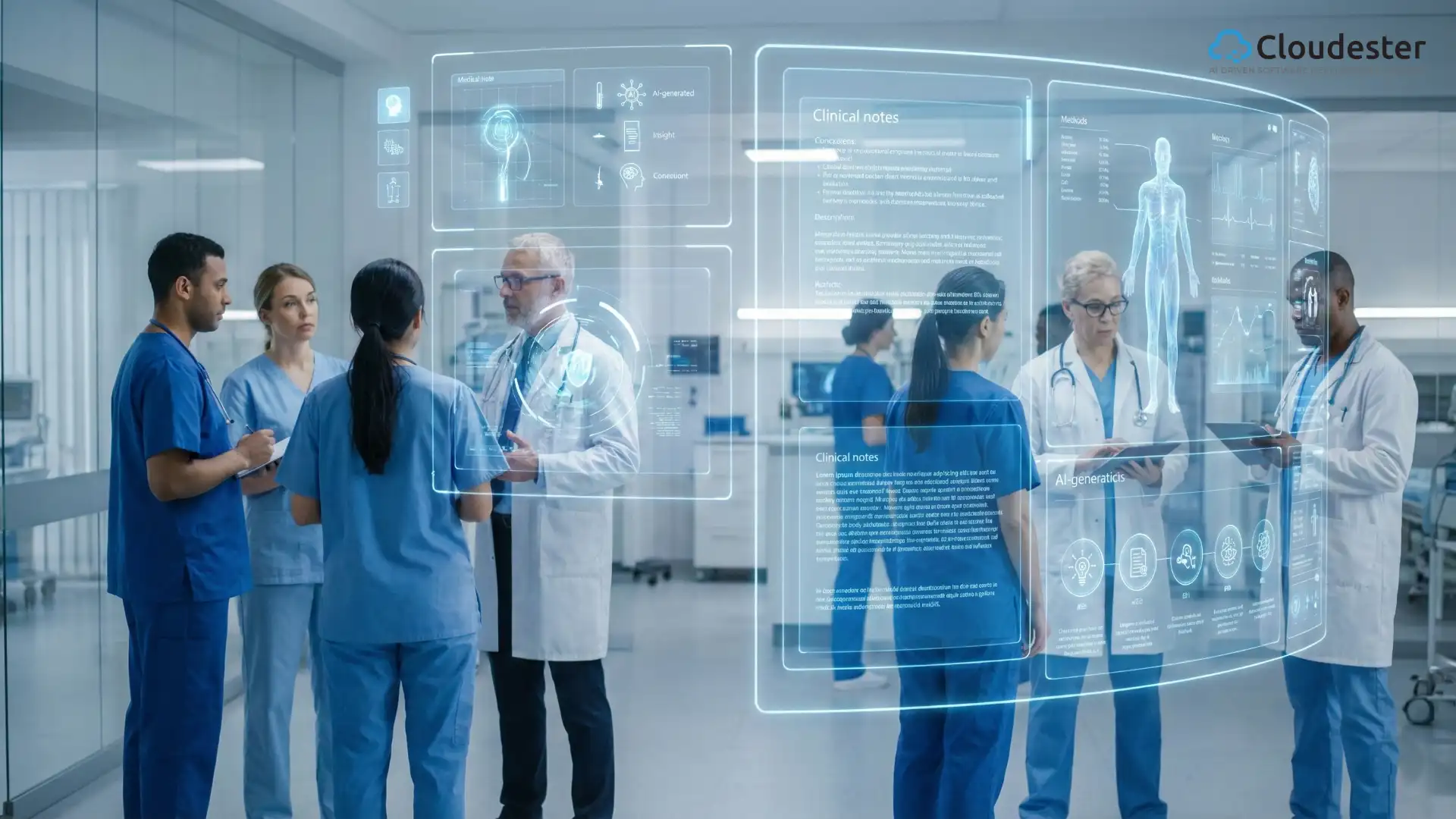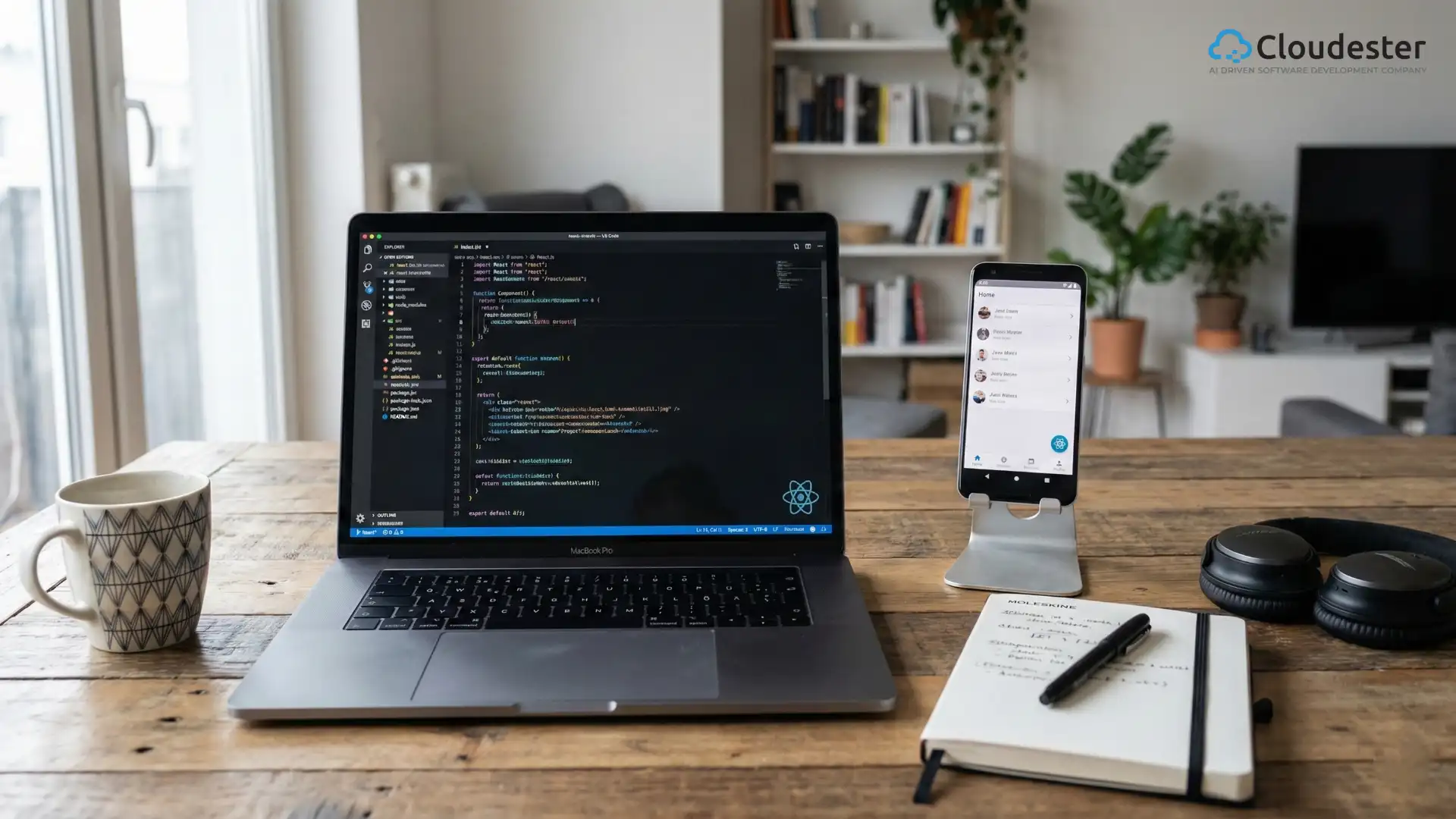How AI and Cloud Automation Are Defining the Future of DevOps

Image Credit: ChatGPT
Table of Contents
- The Role of AI and Cloud Automation in the Future of DevOps
- 1. The Convergence of AI and DevOps
- 2. Enhancing Automation with AI
- 3. Cloud Automation: The Backbone of Modern DevOps
- 4. AI-Powered Monitoring and Incident Management
- 5. Security Implications: DevSecOps in the Age of AI
- 6. Challenges and Considerations
- 7. Future Trends and Predictions
- Conclusion
DevOps is not what it used to be. What began as a way to break silos and automate tasks has now evolved into a smarter, faster, and more data-driven approach. At the center of this transformation is AI and Cloud Automation in DevOps, enabling teams to scale, deliver continuously, and meet real-time performance demands like never before.
Initially, DevOps focused mainly on bridging silos and automating simple deployment tasks. However, it has since matured into a more complex, data-driven discipline that now requires more than just pipelines and scripts to stay effective.
As teams expand, systems spread across multiple environments, and users expect seamless performance, the original DevOps principles are being tested to their limits.
Therefore, a new era is emerging, powered by Artificial Intelligence (AI) and cloud automation.
Importantly, this is not a futuristic dream. AI is already reshaping how organizations test, deploy, monitor, and secure software. At the same time, cloud platforms have become the foundation for flexible, scalable, and always-on infrastructure.
When these two forces combine with DevOps, the result is intelligent pipelines, predictive operations, and a level of agility that traditional automation can no longer achieve.
In this article, we explore how AI and Cloud Automation in DevOps are fueling the next wave of software development and delivery. Whether you are a DevOps engineer, CTO, or part of a product team managing rapid releases, this insight will help you stay ahead of the curve.
The Role of AI and Cloud Automation in the Future of DevOps
1. The Convergence of AI and DevOps
The convergence of AI in DevOps is not merely a trend; it has become a necessity. AI technologies such as machine learning and natural language processing are now being embedded into DevOps workflows to optimize everything from code analysis to deployment decisions.
Traditionally, automation relied on pre-defined rules to perform repetitive tasks. However, AI-driven systems can now learn from historical data, identify anomalies, and even predict failures before they occur. Consequently, teams are experiencing fewer outages and smoother releases.
For example, companies like Cloudester Software are already integrating AI into CI/CD pipelines, enabling faster delivery and greater reliability. This marks a major step toward intelligent, decision-driven DevOps operations.
2. Enhancing Automation with AI
The future of DevOps is being shaped by AI-powered automation that allows teams to shift from reactive to proactive operations. With predictive analytics, AI can forecast resource demands, detect performance bottlenecks, and prevent failures before they affect end users.
Moreover, in the testing phase, AI can prioritize test cases based on previous defect patterns and recent code changes. During deployments, it can determine optimal release times by studying traffic and user behavior. Furthermore, in monitoring, AI can instantly identify the root cause of anomalies.
This proactive approach does not just save time; it also empowers development teams to concentrate on innovation and continuous improvement rather than firefighting.
Custom AI Software Development Solution For Enterprises
3. Cloud Automation: The Backbone of Modern DevOps
If AI brings intelligence, cloud automation provides the foundation. Cloud platforms such as AWS, Microsoft Azure, and Google Cloud now serve as the backbone of modern DevOps environments.
By using Infrastructure as Code (IaC), teams can build, configure, and deploy environments in minutes. Additionally, CI/CD pipelines can scale automatically during high-demand periods and roll back quickly if issues arise.
Cloud automation also simplifies collaboration by maintaining consistent environments across development teams located in different regions. As a result, organizations experience fewer configuration conflicts and faster deployment times.
Cloudester Software leverages cloud automation to help clients release applications with increased agility, speed, and reliability.
4. AI-Powered Monitoring and Incident Management
Previously, monitoring meant reacting to alerts manually. Now, AI in DevOps enables predictive monitoring that detects unusual activity before it becomes a major problem.
AI-powered monitoring systems can analyze logs, detect trends, and trigger automated responses. Consequently, they help reduce downtime and enhance overall reliability.
Furthermore, AI-based incident management platforms can escalate issues automatically or perform pre-set corrective actions, saving valuable human effort.
- Example: AI-based monitoring reduced mean time to resolution (MTTR) by over 40% for a fintech company managing multi-cloud operations.
5. Security Implications: DevSecOps in the Age of AI
In the modern DevSecOps landscape, security is integrated at every stage of development rather than being an afterthought. AI-driven tools can analyze code for vulnerabilities in real time, detect misconfigurations, and flag suspicious user behavior before damage occurs.
Furthermore, machine learning in DevOps helps systems learn continuously from emerging cyber threats and adapt faster than manual security methods ever could. This results in a more proactive, intelligent, and self-improving security framework.
6. Challenges and Considerations
Despite its benefits, adopting AI and cloud automation in DevOps comes with challenges. The biggest one is the skills gap. Teams often require training in AI, data analytics, and cloud architecture to use these tools effectively.
Moreover, legacy systems pose integration issues. Data inconsistency, outdated tools, and internal resistance can slow adoption.
To succeed, organizations should start with small pilot projects, build expertise gradually, and select tools that align well with their current workflows and infrastructure.
7. Future Trends and Predictions
Looking forward, DevOps trends 2025 highlight even stronger synergy between AI and cloud technologies. Some of the upcoming transformations include:
- Self-healing infrastructure powered by AI algorithms
- Fully automated release orchestration without manual intervention
- Cloud-native development as the new standard
- AI-assisted code reviews and documentation generation
Ultimately, DevOps will evolve into a more autonomous and predictive discipline. Therefore, companies that adopt AI and cloud-driven practices early will stay ahead in terms of performance, reliability, and innovation.
For more insights, read AI Integration: Transforming the Future of Software Development.
Conclusion
The fusion of AI and cloud automation in DevOps is no longer a vision for the future; it is a present reality. From intelligent testing and predictive monitoring to scalable deployments and AI-enhanced security, the transformation is already reshaping the industry.
In conclusion, organizations that integrate these technologies at the heart of their DevOps strategy will remain more agile, competitive, and resilient. With experienced partners such as Cloudester Software, businesses can confidently embrace this transformation and accelerate innovation.









